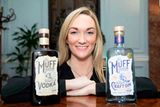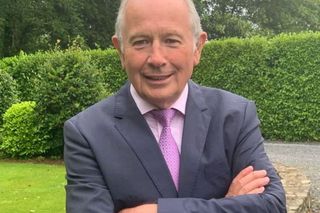AdLib: When the price just isn't right
Media & Marketing with Michael Cullen
The price of groceries after the fall in the value of the pound made headlines in recent days as Anglo-Dutch giant Unilever were involved in spats with Tesco and Musgrave's SuperValu. So it was timely Target McConnells boss Gary Brown should ask UCD economist Dr Kevin Denny to speak about price at the agency's first Noodle seminar.
Denny began his 'When a Dollar Isn't Worth a Dollar' talk by saying that 90pc of the time the age-old law of supply and demand works. But along the way, there are anomalies. Take 'female' products. Razors for men and women are essentially identical, yet women pay more for razors. The same applies to backpacks. Why?
Denny says one explanation for the discrepancies is that women tend to be less elastic spenders than men. Airlines get in on the price game too. They know all about frequent flyers, who goes economy and who travels business or first class. Even relatively low cost brands know the value of price. Belgian beer Stella Artois thrives on its 'Reassuringly expensive' ad slogan.
People don't always know what they want, Denny claims. If a product costs more, it stands to reason it must be better quality. There's also snob value in being seen with the 'the right brand'. Back in 1976, blind tastings of French and New World wines attracted little interest until Californian wines won and it became known as the Judgement of Paris. Denny says if they had known the price of Chateau Latour, the result may have been different. The blind tastings even proved that some people couldn't tell red and white wine apart. The irrational phenomenon known as 'priming' works simply by changing people's reference points, while 'anchoring' suggests people are influenced by the first price they see. When exposed to a higher number, they pay more.
The decoy effect is where one price point is intentionally included to entice consumers to choose the most expensive option. The Economist ran an ad for subscription packages. There were three offers: online for $59, print for $125 and online and print for $125. People could get the print-only sub for the same price as the online and print sub. When all three options were there, people chose the combo sub, thinking it was the best deal. But when the 'useless' option - print sub for $125 - was included, people went for the cheapest option. Turns out the middle option wasn't that useless after all. It gave people a point of reference for how 'good' the combo deal was and enticed them to pay more for it.
Pricing something at €29 rather than €30 works psychologically too, as does €19.99 rather than €20. While most people love a bargain, they will sacrifice money to achieve fairness or punish wide boy practices. Price context matters, as does culture. What succeeds in Dublin may not necessarily work in New York. Consumers struggle with risk. It's why Paddy Power make so much money from conjunction bets - like, for instance, 4/1 on Chelsea beating Manchester United 3-2 at Stamford Bridge this Sunday, with Diego Costa being sent off in the 65th minute and Eden Hazard scoring the winner in stoppage time. Bookies have data analysts who know about form and can calculate the risks they run.
* Fashion photographer Barry McCall shot the new Connacht Gold TV ad fronted by former model and blogger Pippa O'Connor. The butter brand comes from the same Aurivo stable as Kerrygold, with communications and brand manager Karen McGarty in charge. Bloom came up with the idea and OMD handles media buying.
Research suggests most consumers believe butter comes wrapped in foil, unlike Connacht Gold, which is in a tub. Most consumers associate a tub with spreads, prompting the line 'there are some things you don't expect to find in a tub'. The TV ad was produced by Maxine Brady's Pull the Trigger.
Connacht Gold is is also the subject of a Magazines Ireland campaign to show the power of print. It will run across 17 titles between now and Christmas. The purpose of the initiative is to collect measurable data in support of a case study into the effectiveness of Irish magazines.
* The shortlist for this year's Marketer of the Year award has been confirmed.
The three finalists are Largo Foods' head of marketing Alina Ui Chaollai, Adam Bacon, VHI's head of marketing and Dervila McGarry of Aer Lingus. The next stage of the competition sees the three marketers attend interview presentations with the judges. The winner will be announced at a lunch in Fade St Social on November 17.
Michael Cullen is editor of Marketing.ie; cullen@marketing.ie
Join the Irish Independent WhatsApp channel
Stay up to date with all the latest news














